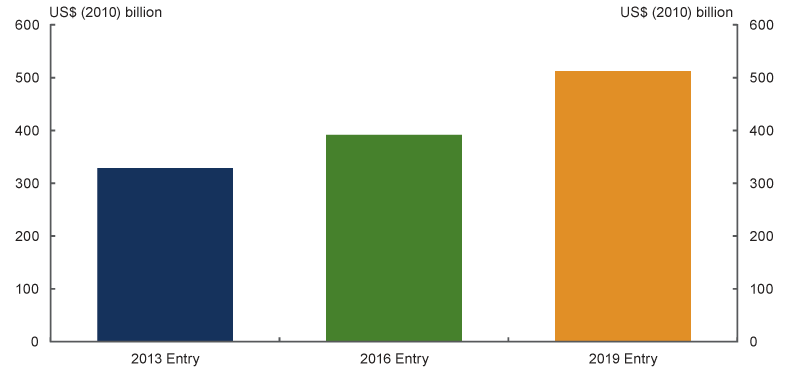Early global action is cheaper than later action and, in a world moving to tackle climate change, economies that defer action face higher long‑term costs.
Delaying global action will increase climate change risks, lock in more emission‑intensive investments and defer new investments in low‑emission technology, industry and jobs.
This will increase the cost of achieving any given environmental outcome.
Climate change mitigation is not something that gets easier the longer it is left undone – it only gets harder.
The costs of global delay have gone up since the previous Treasury modelling.
Delay brings initial benefits, but every year of global delay adds to the eventual economic and social cost of tackling climate change.
Delaying global action by 3 years adds around 20 per cent to the first year global mitigation cost. Delaying entry by a further 3 years adds a further 30 per cent to the first year mitigation cost.
Late movers also miss out as global investment in low-emission technology, industry and jobs is redirected to early movers.
The world is moving now to reduce pollution.
If Australia does not do its fair share to cut carbon emissions, other countries may move to tax our trade in ways that damage our competitiveness in a low‑emission world.
As a trading nation, the imposition of penalties on our exports would have a significant impact on our economy and further increase the costs of delay.
Cost of the global economy of mitigation action in the first year
